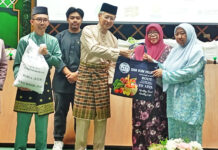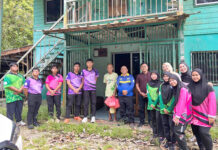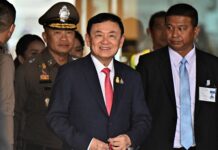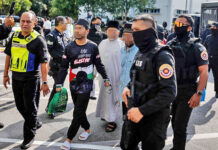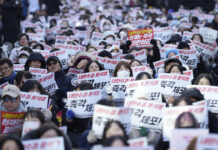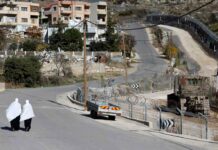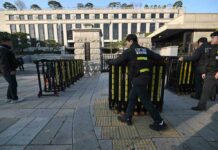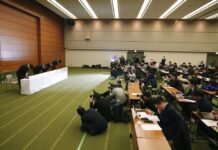YANGON, Myanmar (AFP) – An alliance of Myanmar ethnic minority groups said it made more gains in its offensive against the ruling junta on Friday, with the regime vowing it would hit back at the biggest military challenge it has faced since it seized power.
The development comes as the head of the Russian Navy, a top ally of the junta, arrived in Myanmar on an official visit to oversee the launch of the first joint military exercises between the two countries in recent history, Russia’s Defense Ministry said in a statement.
Fighting has raged for a week across a wide area of northern Shan state near the China border, forcing more than 23,000 people from their homes, according to the UN.

The Myanmar National Democratic Alliance Army (MNDAA), the Ta’ang National Liberation Army (TNLA) and the Arakan Army (AA) say they have captured dozens of outposts and four towns and blocked vital trade routes to China.
TNLA fighters seized an outpost from the military near the town of Namhkam near the China border on Friday, the group told AFP.
The military had called in air and artillery strikes, a TNLA spokesman said.
The MNDAA said on its media channel that its fighters had made gains in battles in the Kokang region, around 100 kilometres to the east.
Russian navy chief Admiral Nikolai Yevmenov arrived in Myanmar on Friday to oversee the joint military drills, meet with top officials and visit warships, Russia’s Defense Ministry said in a statement.
Moscow is a close ally of the junta, providing arms and diplomatic support since the February 2021 coup.
Divided town
A junta spokesman on Thursday dismissed as “propaganda” claims that the alliance had captured several towns in Shan state.
Junta chief Min Aung Hlaing said the military “will launch counter-attacks” against the groups, in comments carried by the state-run Global New Light of Myanmar newspaper on Friday.
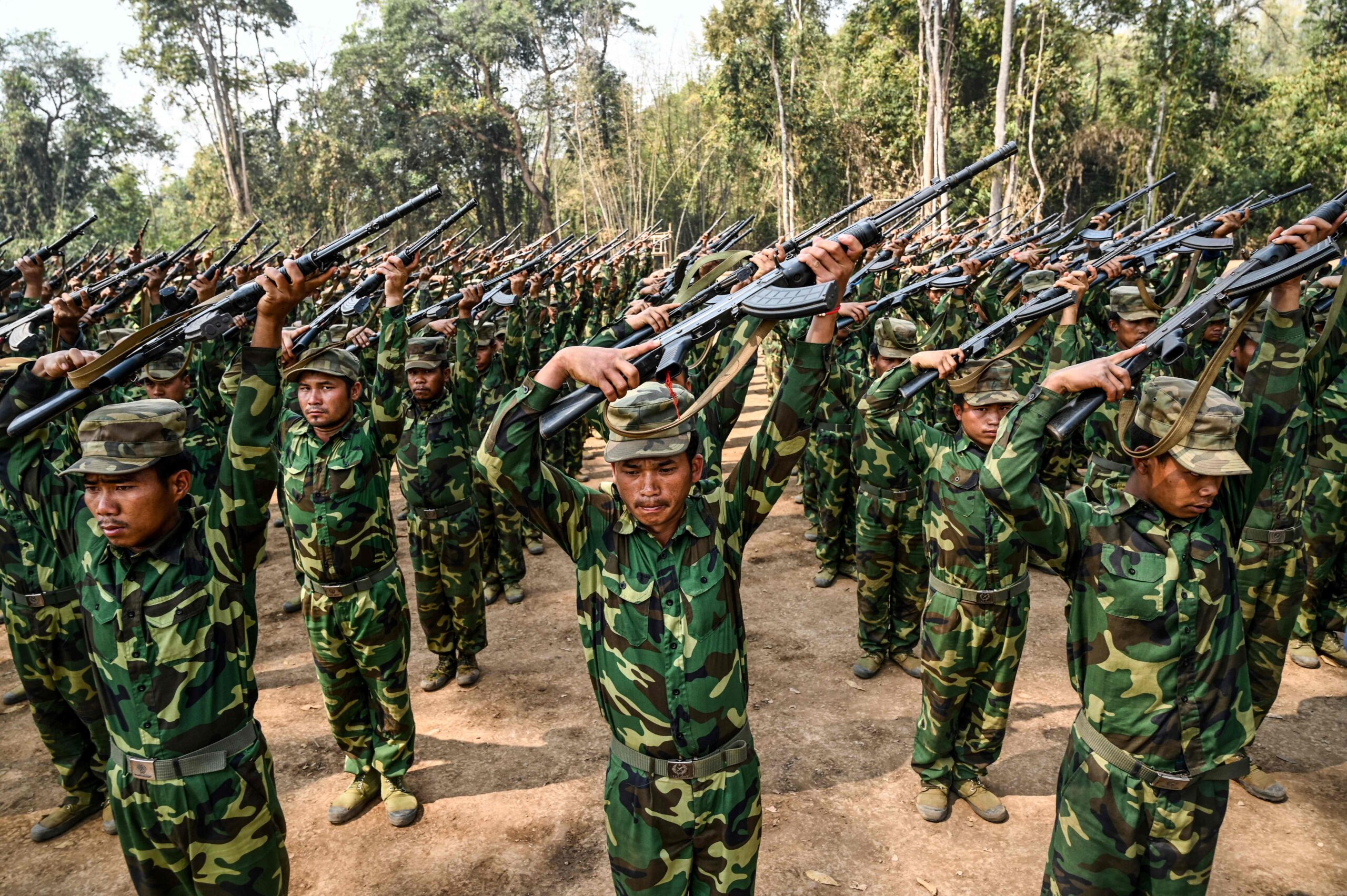
A resident in Hsenwi, a strategic transport node around 90 kilometres from Chinshwehaw, told AFP that locals were hiding in their homes as clashes raged.
“It’s chaos — neither the military nor the alliance groups are in control of the town,” the resident told AFP by phone, requesting anonymity to protect their safety.
“There is fighting every day, with heavy artillery shelling and air strikes as well.”
He said an important bridge was down, effectively cutting the town in two, and people from outlying villages were moving in to seek shelter from clashes in the countryside.
“Thousands of people are stuck in town. We still have food to eat by sharing with each other,” he said, adding that 10 civilians had been killed and 10 wounded.
Communications with the remote region are patchy and access impossible while fighting rages, so AFP was unable to immediately confirm the casualty toll.
“Those who have knowledge of medicine are helping to treat the wounded — people dare not to go to the hospital although we heard it’s open,” the resident said.
Enze Han, an associate professor from the University of Hong Kong, told AFP that with the loss of Chinshwehaw and with other major roads to China blocked “at least currently… bilateral border trade between China (and) Myanmar has probably come to a stop.”
Trade amounted to more than $1.8 billion between April and September this year, state media reported in September, a crucial source of revenue for the junta.




